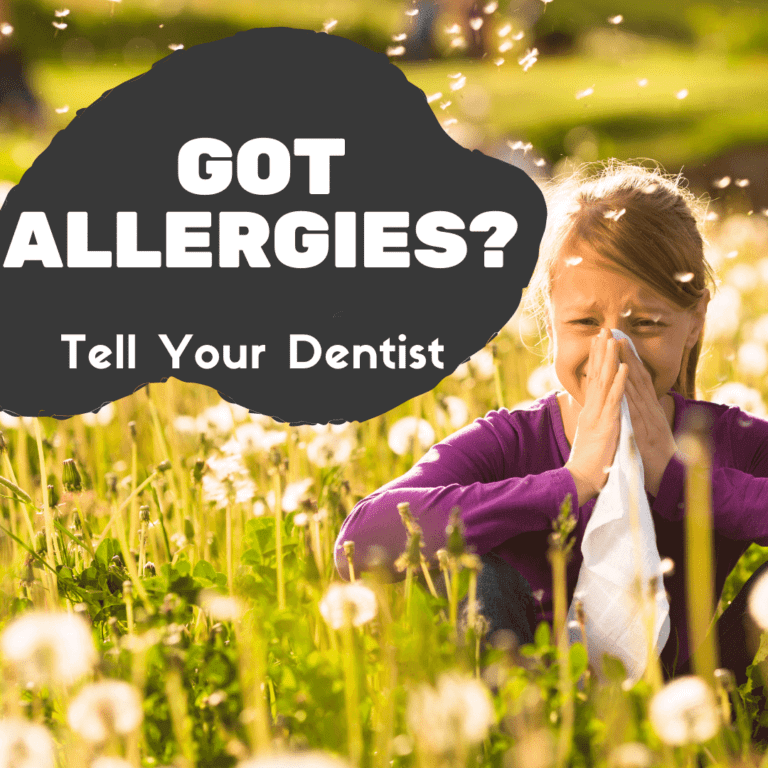Do you have seasonal allergies? Does your dentist know? Every year, the Allergy and Asthma Foundation of America estimates that 50 million Americans are affected by allergies. While many people think that seasonal allergies have nothing to do with their teeth, seasonal allergies actually have quite the effect on your oral health. Here are the top three oral health problems that are directly caused by seasonal allergies:
Tooth Pain

Tooth pain has a variety of causes and one of these causes, believe it or not, is seasonal allergies. Tooth pain caused by allergies occurs when excessive amounts of mucus in the sinus cavities press down on the tooth roots of the upper teeth. In some cases, this can also result in tooth sensitivity to hot and cold temperatures. This happens because the two largest sinus cavities are located in the face just above the upper jaw. Usually tooth pain due to allergies will fade after taking an antihistamine, however if it continues you should see your dentist.
Dry Mouth
Allergies can cause dry mouth in two different ways. The first way is through mouth breathing that results from having a stuffy nose. The second way is through taking antihistamines since a main side effect of antihistamines is, unfortunately, dry mouth. The lack of saliva production associated with dry mouth can increase the risk of tooth decay and gum disease since more bacteria can accumulate in the mouth. This ultimately means that you may be at a higher risk for developing these dental problems during allergy season.
Bad Breath
One result of having less saliva and more bacteria in the mouth is bad breath. However, bad breath from allergies is also caused by bacteria that accumulates in the throat due to postnasal drip. As excess mucus drips down from the sinuses through the back of the throat, this causes irritation to the throat, as well as bacterial accumulation. Unfortunately, when bad breath is due to bacteria in the throat, it is harder to get rid of since brushing does very little.
At this point, you are probably wondering how you can prevent these oral health problems if you suffer from seasonal allergies. Luckily, there are a few things you can do to keep these issues under control and minimize their negative effects. For starters, you will want to take antihistamines to address the allergy symptoms. Then, you will also want to take additional steps to address the dry mouth and bad breath. Generally speaking, increasing saliva production is the key to treating both dry mouth and bad breath. Therefore, it is important to stay hydrated. It may also be helpful to chew gum with Xylitol, suck on sugarless candies, or use a moistening spray. When it comes to alleviating bad breath from post nasal drip, it is helpful to gargle with a warm salt water rinse. This helps to flush out the bacteria that has accumulated in the throat in order to reduce odor.



